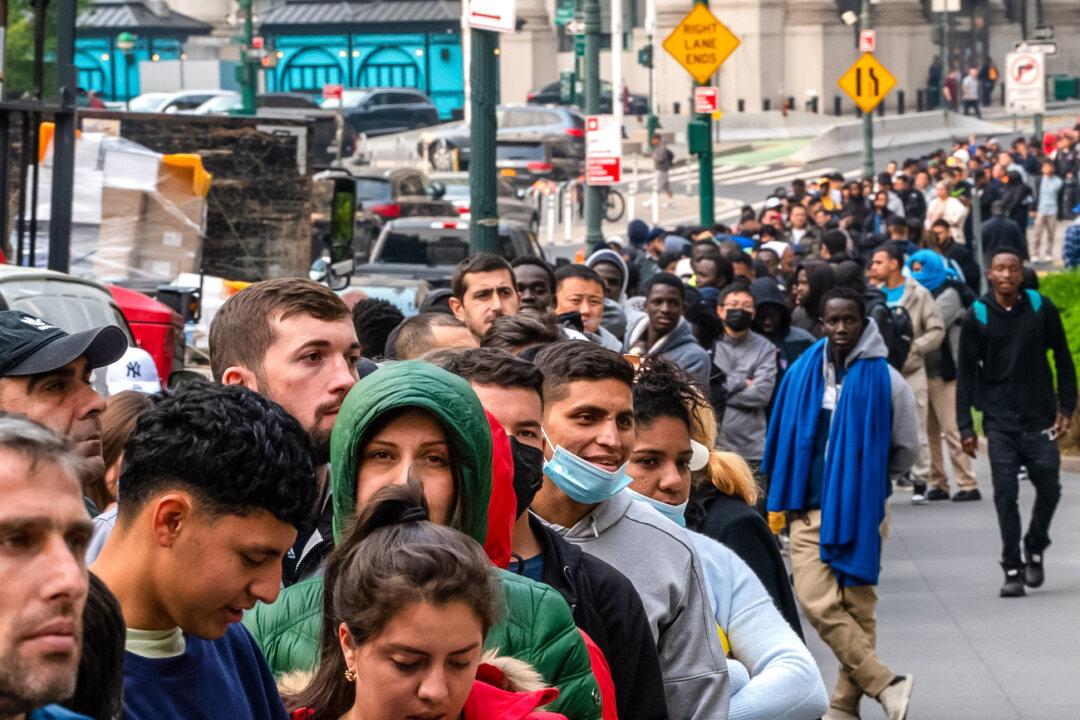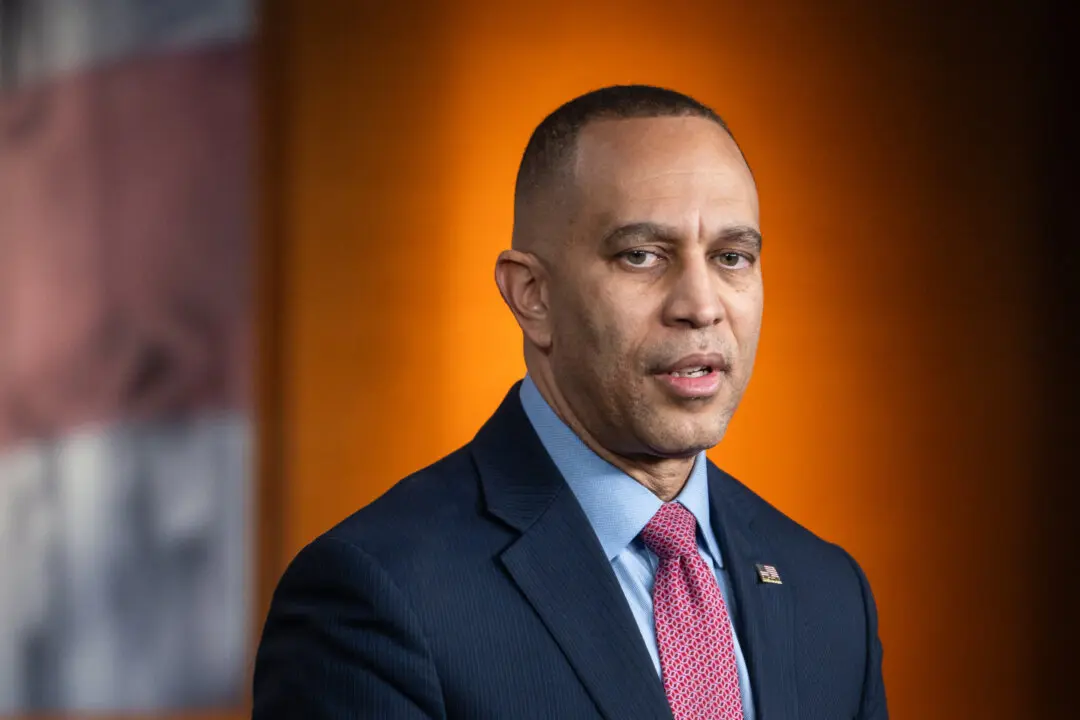New York City has reached an agreement with the Legal Aid Society that will enable the city to limit the duration of stay for adult migrants in shelters amid an ongoing surge in new arrivals, according to the mayor.
The agreement essentially ends the blanket right to shelter for adult migrants after 30 days, allowing only those who meet “extenuating circumstances” to reapply on a case-by-case basis.





